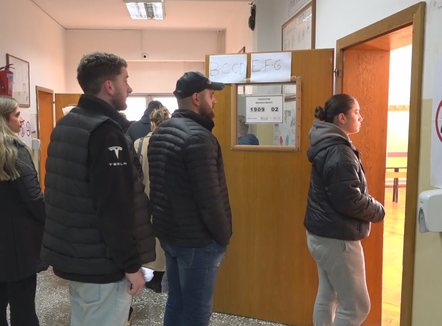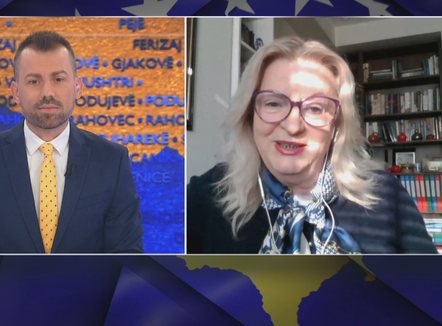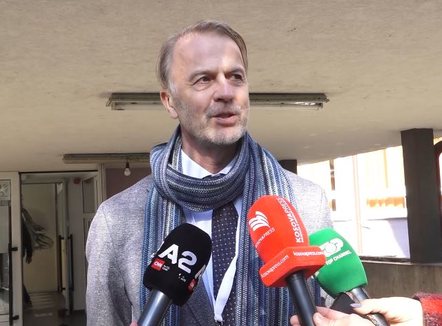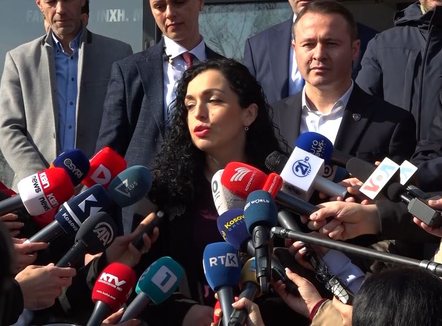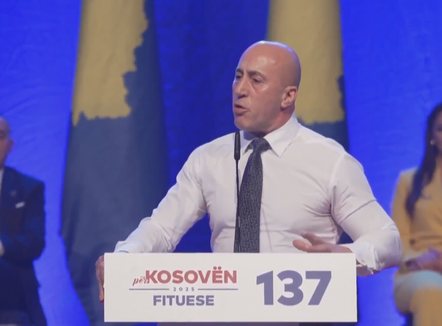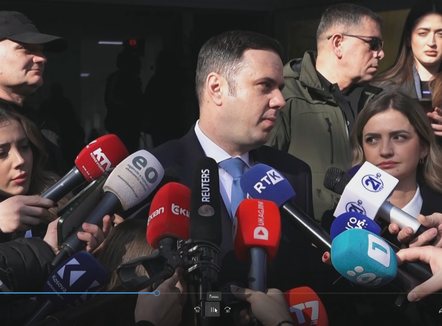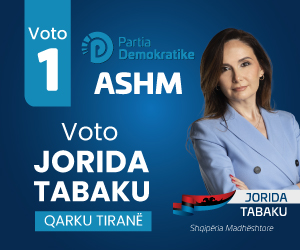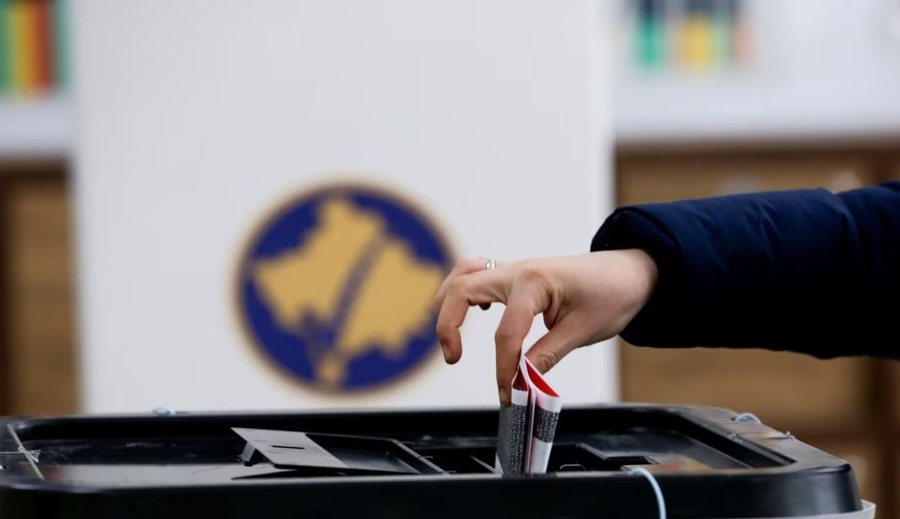
The European Union's punitive measures have not forced the Kosovo government to change its course, but they have had an impact on the well-being of citizens. Without a clear consensus within the EU on when they can be lifted, uncertainty continues to shape the situation.
Twenty months after freezing funds for Kosovo and suspending high-level visits, the European Union continues to refuse to lift these measures, despite continued requests from Pristina, but also from the European Parliament.
In a response to Radio Free Europe, a spokesman for the bloc said that "the EU's temporary measures are reversible and the Council has already set conditions for their gradual lifting, which are linked to steps being taken by Kosovo to reduce tensions in the north."
Klisman Kadiu, from the Office of Kosovo's First Deputy Prime Minister, Besnik Bislimi, did not respond to Radio Free Europe's question about whether the country's government has any signal about when the EU measures will be lifted. Similarly, he did not answer how much the losses from them are estimated to be.
The EU punished Kosovo in June 2023, due to what it assessed as Prime Minister Albin Kurti's role in fueling ethnic tensions in the north of the country - an area inhabited by a Serb majority.
Despite the measures, Kurti did not back down, removed the Serbian dinar from use, closed most of Serbia's institutions, and defended this policy as an extension of authority.
On several occasions, he described EU measures as unfair, saying that he could not compromise with the rule of law and the country's constitutionality.
The EU did not disclose which projects specifically have been affected by the suspension of funds for Kosovo. However, sources from Radio Free Europe/Radio Liberty learned that they range from culture to infrastructure and that their value reaches up to 100 million euros.
Fisnik Osmani, CEO of Pristina City Heating Company "Termokos", confirms that a project of the company to double the heating capacities in the capital has been suspended, due to the freezing of a grant of 17.6 million euros from the European Union.
These funds, he says, were part of the IPA program, which provides financial and technical assistance to countries aiming for the EU, but which in the case of Kosovo has been blocked.
"EU sanctions have greatly damaged Kosovo's economic development. In this case, unfortunately, the City Heating Plant has also been damaged, and consequently the city of Pristina and its citizens," Osmani tells Radio Free Europe's Expose program.
He indicates that the project costs a total of 65 million euros, that over 15 million euros will be guaranteed by the Government and the Municipality of Pristina, while the rest will be provided through loans.
Osmani says that the works were supposed to start this year, but that it is not certain now.
He also indicates that "Termokos" currently covers over 25,000 families in Pristina and that with the new project, this capacity would be doubled and, consequently, electricity consumption and air pollution would be reduced.
"The project foresees expansion into multi-storey buildings. So, massive expansion in the new Prishtina, the part of Calabria, the part of the Muhaxherëve Neighborhood, a part of Arbëria... Prishtina would practically be completed in terms of heating, the moment the project is finalized," says Osmani.
From the day this project starts, it will take three years to complete, he emphasizes.
And there is not even a formal deadline for lifting the EU's punitive measures against Kosovo, says Augustin Palokaj, a journalist who follows EU policies in Brussels. This is due to the fact that they are not classic sanctions with a specific time limit, according to him.
"These measures are a hybrid in the EU's undertaking, because there has been no formal decision for them, which would be repealed. So, they are not classic sanctions. They are measures that have been taken by EU institutions, based on a political declaration, and that now there is no agreement from all member states that they should be lifted," says Palokaj.
He adds that discussions about them are being held behind closed doors, but that he has learned from diplomatic sources that countries such as France, Italy, Slovakia and Hungary are against lifting the measures. They want their lifting to be conditional and done gradually.
Palokaj recalls that decisions in the EU are made with the consensus of all 27 member states and says that Kosovo does not have any diplomatic mechanism to negotiate the lifting of the measures.
"They are measures for projects financed by the EU - that is, they are unilateral financing, which is not part of formal agreements with Kosovo. The EU gives them as grants for projects, but it can also stop them itself. Their management is done by the EU and the beneficiary has no mechanisms to force it to provide those funds," says Palokaj.
Naim Rashiti, director of the Balkan Policy Group in Pristina, says that Kosovo has ways to convince the EU to lift the measures and lists some of them:
"Kosovo must deal with the European agenda process. It must create a roadmap for actions in the north, until it comes to a situation where Serbs return to institutions, free elections are held there and the process of normality begins. I believe this is the condition that the EU is waiting for."
Rashiti says that the punitive measures have had no impact on the behavior of Kosovo's institutions and calls them a "disaster" with long-term consequences.
"First, the measures have further distanced Kosovo from integration processes, have placed additional barriers, have drastically reduced trust and have given arguments to many European officials and bureaucrats, who have been waiting for something to prevent Kosovo's agenda from being put on a positive track. This is the biggest damage. Then, there is the issue of stopping projects, investments, programs and so on," says Rashiti.
Kosovo is the only country in the Western Balkans that is not a candidate for EU membership. It applied to join the 27-member bloc in December 2022, but has not received a response.
Despite this situation, Palokaj says he does not see any risk of increasing Euroscepticism in Kosovo, so the EU, according to him, feels very comfortable with its actions.
"Kosovo has been discriminated against in many other areas and this has not reduced Kosovars' support for the European Union. Kosovo has been kept without visa liberalization for years and support for the EU in the country has been the highest in the region and Europe. Punitive measures create despair with the EU, but they do not turn into euroscepticism or opposition to the EU on the part of citizens," says Palokaj.
This belief is also supported by a survey by the International Republican Institute, based in Washington, conducted in the six Western Balkan countries in February-March last year.
According to the results of this study, 87% of respondents in Kosovo want their country to follow a pro-European Union and pro-Western course, unlike Serbia, where only 10% of respondents gave the same answer.
Rashiti, however, warns that if the EU's punitive measures continue for a while, they will negatively affect Kosovo's long-term relations with the EU, especially now when political developments in the world change from day to day.
“As we speak, I don’t know how much time [EU foreign policy chief Kaja] Kallas and [European Commission President Ursula] von der Leyen will have to deal with the Western Balkans, or specifically with Kosovo. The space is getting narrower and narrower. The layers of difficulties are growing and they are beyond Kosovo’s control, but Kosovo has some elements in its hands and needs to mobilize quickly to get out of this trap,” says Rashiti.
This week, the European Parliament once again called on the EU to lift punitive measures against Kosovo, saying that "they are in contradiction with Kosovo's proven commitment to European values and its alignment with EU policies."
Also this week, the head of the EU Office in Pristina, Aivo Orav, recalled that the lifting of the measures requires the consensus of all 27 EU states, and said that discussions on this issue are ongoing.
When and how those talks might conclude is unclear, as is often the case when EU policies are at stake. /REL/ (A2 Televizion)

